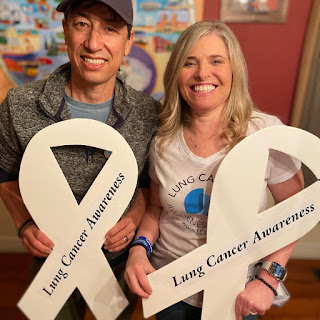It's Not (Just) About The Money: It's About The People
As I reflect on my work with pharmaceutical and biotech companies over the past twenty years, I realize I have seen a lot. My experience spans many aspects of the industry and I've met hundreds of people along the way. The people I've worked with include product (brand) marketing, public relations, market research (competitive analysis), medical education, reimbursement, patient advocacy, and research and development. I also worked with a lot of people in the nonprofit patient advocacy sector who relied on the pharma industry for funding for important education programs. And when I sent to work for one of these nonprofit cancer research organizations, I had the opportunity to meet many academic researchers who had collaborative relationships with industry. All of this led me to become an evangelist for medical research and work in the nonprofit sector and work with scientists in academic labs. So I have a good understanding of the people in the ecosystem of drug development. I have an opportunity to share my experience and stories about these people who have crossed my path. From large companies like Novartis, small companies like Fulcrum Therapeutics, and scientists in academic labs, I've worked with a lot of committed people who are not in it (just) for the money. I will be writing about some of these amazing people in the coming months.
Read the headlines today about the pharmaceutical industry and the one word I see over and over is greed. I get why people are upset. Americans spend about $1,200 on prescriptions drugs a year, according to the latest figures from the Organization for Economic Cooperation and Development. That’s more than people pay in any other developed country in the world. And yes, we've all read the stories about price hikes and guys like "Pharma Bro" Martin Shkreli—famously known as the guy that jacked up the price of a lifesaving AIDS treatment by 5,000%. I don't propose to have the answer to solving the problem of high prescription drug costs. But I have a perspective from working with the industry for many years, and it's unfair to call everyone in pharma and biotech "greedy." I'm here to tell you they are not. In fact, my experience is with mostly good people who are like me, trying to make a difference in improving the lives of people with life-threatening disease like cancer, and rare disorders such as Fragile X syndrome.
And consider that developing a new prescription medicine that gains marketing approval is estimated to cost drug makers $2.6 billion according to a recent study by Tufts Center for the Study of Drug Development and published in the Journal of Health Economics. And the average time it takes to bring a drug through clinical trials averages over 10 years. Maybe most importantly, nearly 9 out of 10 drugs fail along the way. So that means companies invest billions knowing that the chance of success is narrow. So, if you or a loved one has a life-threatening condition or complex rare disease, think about the process of what it takes to bring a new discovery to patients. Time, money, risk, commitment, collaboration. It doesn't just happen. And it certainly doesn't happen overnight. So the cost of treatments is clearly a major problem in the United States. My goal is not to solve that problem. Rather, I want to introduce people to some of the dedicated people I've met along the way in my journey to be an evangelist for medical research..
Read the headlines today about the pharmaceutical industry and the one word I see over and over is greed. I get why people are upset. Americans spend about $1,200 on prescriptions drugs a year, according to the latest figures from the Organization for Economic Cooperation and Development. That’s more than people pay in any other developed country in the world. And yes, we've all read the stories about price hikes and guys like "Pharma Bro" Martin Shkreli—famously known as the guy that jacked up the price of a lifesaving AIDS treatment by 5,000%. I don't propose to have the answer to solving the problem of high prescription drug costs. But I have a perspective from working with the industry for many years, and it's unfair to call everyone in pharma and biotech "greedy." I'm here to tell you they are not. In fact, my experience is with mostly good people who are like me, trying to make a difference in improving the lives of people with life-threatening disease like cancer, and rare disorders such as Fragile X syndrome.
And consider that developing a new prescription medicine that gains marketing approval is estimated to cost drug makers $2.6 billion according to a recent study by Tufts Center for the Study of Drug Development and published in the Journal of Health Economics. And the average time it takes to bring a drug through clinical trials averages over 10 years. Maybe most importantly, nearly 9 out of 10 drugs fail along the way. So that means companies invest billions knowing that the chance of success is narrow. So, if you or a loved one has a life-threatening condition or complex rare disease, think about the process of what it takes to bring a new discovery to patients. Time, money, risk, commitment, collaboration. It doesn't just happen. And it certainly doesn't happen overnight. So the cost of treatments is clearly a major problem in the United States. My goal is not to solve that problem. Rather, I want to introduce people to some of the dedicated people I've met along the way in my journey to be an evangelist for medical research..
